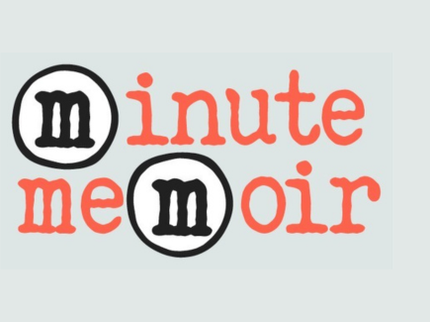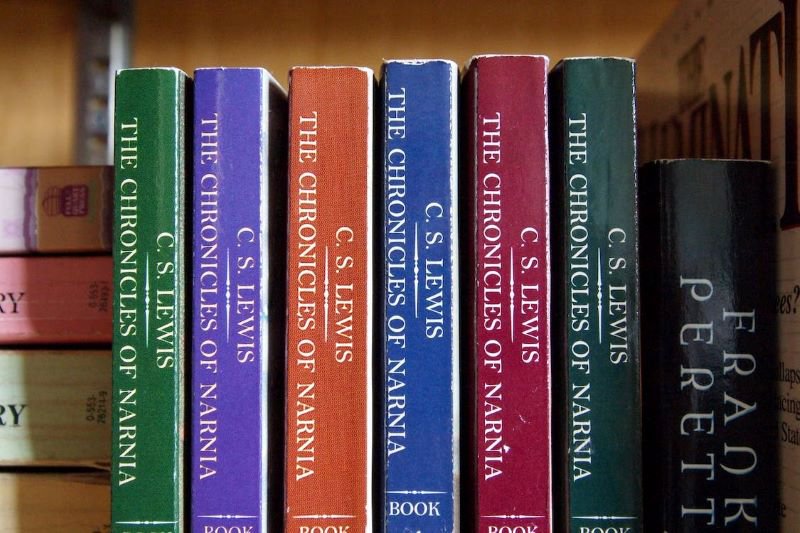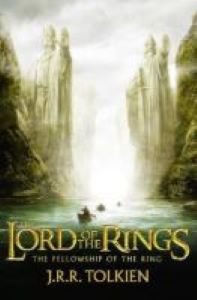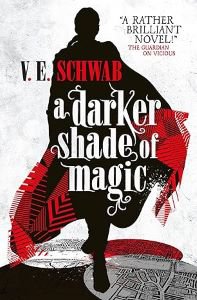
Reading & Libraries
The Minute Memoir at Forest Town Library
Join our free, guided, life writing sessions. We’ll help you explore your memories one at a time. W…
Our new library catalogue is live!
Log in now
to browse, reserve and renew, or
visit our library service updates
for the latest news and tips.
Join Inspire's Tabitha as she explores the history of the fantasy genre and why it's proved so endlessly popular.

When I was growing up, my dad always said, “the only books worth reading are the ones with maps in the front”. He was of course referring to fantasy books and the amazing artwork detailing fantastical made-up lands that so often appear at the start of fantasy books. And although I read a great many genres, I am rather inclined to agree with him. I am an avid fantasy fan in all its forms, from books to film & tv, graphic novels to video games – you name it, I’ve consumed it. But what is it about the fantasy genre that fascinates me and so many others?
I have always found solace and escape in ‘other worlds.’ Every time we read, we essentially visit another place, but something about the fantastical, the magic, the mythology of fantasy has always drawn me in. As children we often dream of visiting magical far-off lands; I’m sure a lot of you can remember poking the back of a wardrobe and hoping it would take you to Narnia, or eagerly awaiting your Hogwarts letter, but my love of fantasy didn’t fizzle out as I reached adulthood. If anything, it strengthened.
As a neurodivergent individual, I identify with the idea of being ‘different’ and so many fantasy stories include characters othered by society, for their powers or magic, or maybe because they are an elf in the company of humans. The ‘chosen one’ trope that so often appears in fantasy usually relies on the main character starting the story being somewhat of a loner, but by the end through journeying across magical lands and fighting against the evil antagonist, they find their place in the world and end the story belonging somewhere, with friends and comrades that they became close to throughout the story. As I struggled through the horror of high school, I stood with Alina Starkov against the Darkling, I fought the dead with Sabriel and attended camp half-blood with Percy Jackson. Those worlds and characters provided me with a sense of belonging that I never achieved in the ‘real world’.

Fantasy as a genre has a long and interesting history. Humans have always told tales of magic and folklore to each other and what started as oral tradition then became written, in the form of fairy tales and fables, cautionary tales to examine the human condition through the lens of magic and strange creatures. The modern fantasy novel could be viewed as a continuation of this age-old tradition.
I cannot write an article about the fantasy genre without mentioning J.R.R. Tolkien’s masterpiece that is The Lord of the Rings. The grandfather of modern fantasy, Tolkien set a precedent for high fantasy that inspired many authors to emulate him. The latter half of the 20th century is littered with offerings from writers such Terry Brooks, Ursula K. Le Guin, and many others. Fantasy films of the 80’s and 90’s such as Labyrinth, Dark Crystal, The Princess Bride and Never Ending Story, along with the arrival of the tabletop roleplaying game, Dungeons and Dragons, all added to the rising demand for the genre.
In more recent years there has been another renaissance in the form of the staggering popularity of the Game of Thrones TV adaptation of George R.R. Martin’s A Song of Ice and Fire series, and later The Witcher and Wheel of Time series again both based on brilliant books series. Most of these mentioned so far fall into ‘epic’ or ‘high fantasy’, categorised by inclusion of other worlds, species of creatures such as elves, goblins and giants. Often featuring big battle scenes with horses, dragons, swords, knights in armour. I love this sub-genre, it’s what started my love of fantasy and it’s often where you’ll find the best maps (which is, as we’ve already established, very important). It also often continues the ‘chosen one’ and ‘found family’ tropes that I loved in children’s fantasy.

As time has gone on, writers and creators have taken inspiration from other genres and stories leading to more and more sub-genres. Grimdark, Cosy Fantasy, Dark Academia and Magical Realism are just some of these examples. Love stories have always appeared as sub plots in fantasy but making romance the centre of the story has proved massively popular for series such as A Court of Thorns and Roses and the Plated Prisoner series.
Indeed, the allure of fantasy lies in its diversity. Many people dismiss the genre because they don’t want to read a huge 100,000 word, high fantasy book about elves and goblins, knights or dragons, but those who do pass over fantasy are missing out on so much. I hate to fall into cliché but there really is something for everyone, or at least something for most people. It’s not all just dragons and Hobbits, if you want to just dip your toe into the vast ocean of fantasy then there are perhaps less intimidating choices for you. Urban fantasy is a good place to start, most of these books take place in a version of our world, with strange creatures or magic hiding just out of plain sight. Good examples of this would be Neil Gaiman’s Neverwhere or V.E Schwab’s Shades of Magic series.
The wonderful rise in recent years of Young Adult fiction has allowed for more accessible fantasy novels, not so bogged down with lore or ten pages of description of one tree (looking at you Tolkien) but focusing on character and ‘found family’ tropes. There has always been children’s fantasy but the teen/YA fantasy boom of recent years, starting with Twilight, also includes Maggie Steifvater’s The Raven Cycle and Leigh Bardugo's Six of Crows. These books often veer away from traditional epic fantasy and focus more on magic in the ‘real world’ but underneath it all the themes remain much the same.
In fact, I think the enduring appeal of fantasy isn’t in the medieval aesthetic (although it is fun to wear a cape and run about with a sword), nor is it necessarily the monsters, creatures and magic that so often populate its pages. It lies in the morality of the tales themselves; the good vs evil stories and the hero’s quest. Lord of the Rings isn’t really about Hobbits or Orcs. It’s about fighting for the good that’s left in the world. These tropes, while they exist in other genres, exist in the purest form in fantasy. So much of life is a grey area, with complex social rules and people who are neither good or bad. What I find solace in and crave in a fantasy story is the simplicity of fighting monsters with your rag-tag group of weird friends you met along the way.

Tabitha is an avid fantasy fan and works for Inspire as Arts Support Officer, programming arts and reading events.
We hope you enjoyed this journey into fantasy and if you'd like to read more, click here for more fantasy book recommendations.
If you love fantasy, why not check out our Fantasy Author event with M.A Kuzniar at Beeston Library.